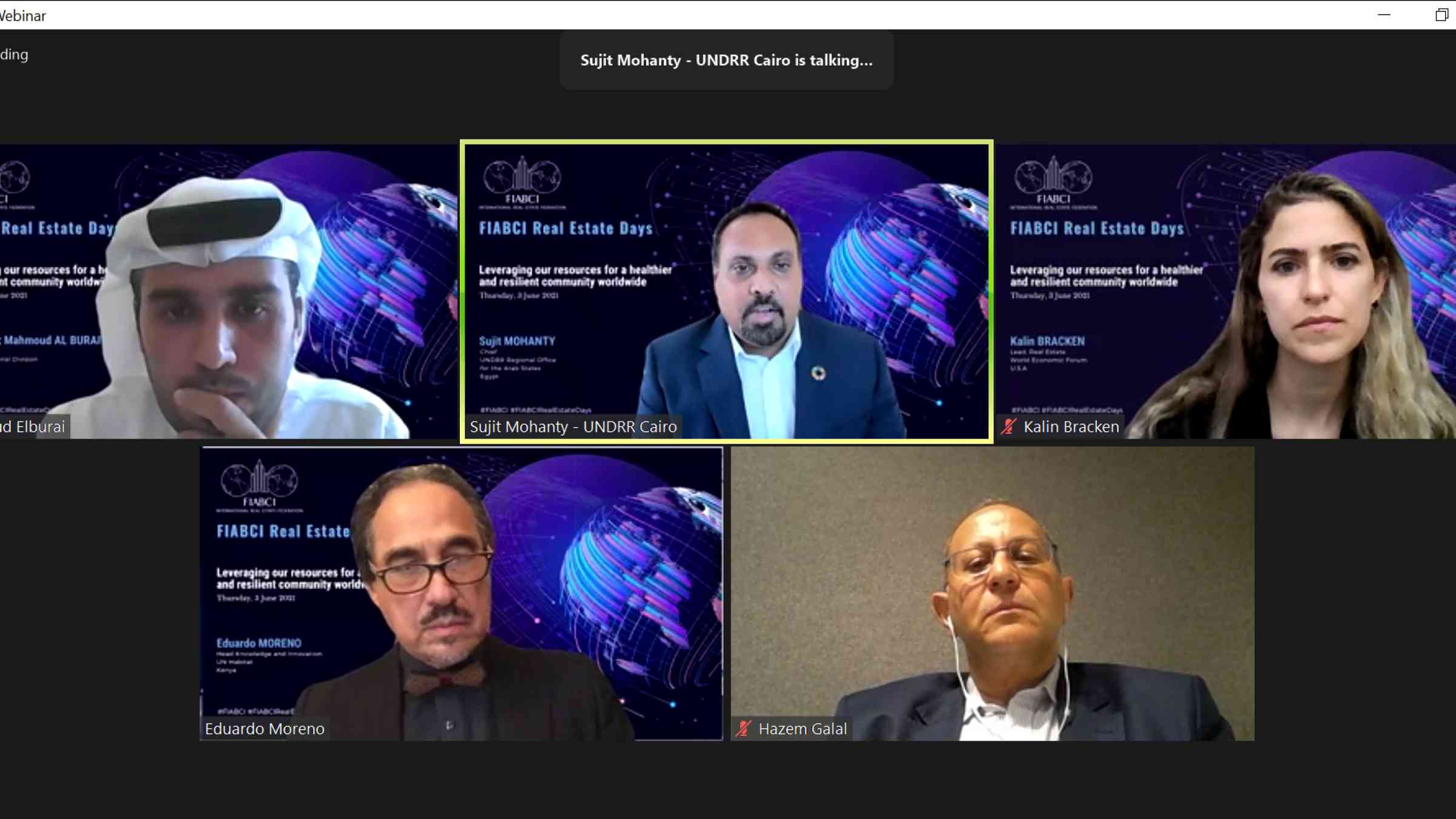UNDRR Participation at the FIABCI Real Estate Days: Together we need to think and act differently about disasters

The United Nations Office for Disaster Risk Reduction joined the FIABCI Real Estate Days, which was organized virtually under the theme “Digital Transformation and the Legacy of the Global Outbreak in the Real Estate” over a period of 3 days from 1 to 3 June, bringing together experts from around the world. The event saw high-level presentations, panel discussions, and a workshop on topics ranging from data ethics to sustainable and resilient communities.
On the third day, the UNDRR Regional Office for the Arab States (ROAS) was represented by the Chief of UNDRR (ROAS) Mr. Sujit Mohanty in a session titled “Leveraging our Resources for a Healthier and Resilient Community Worldwide,” which discussed resilient cities from the perspective of real estate and resilience of infrastructure involving the real estate industry in the resilient process, expectations on the cities’ emerging trends, resilience and SDGs, and the role of the real estate market in building healthier cities.
“Out of a total of 1,860 cities with 300,000 inhabitants or more in 2018, nearly 58%, or 1,087 cities, were highly exposed to at least one of the six natural hazards (cyclones, floods, droughts, earthquakes, landslides, and volcanic eruptions),” said Sujit Mohanty, Chief of the UNDRR Regional Office for the Arab States, highlighting the need to invest more in building the resilience of infrastructure, “the additional dollars needed to make new infrastructure assets and systems resilient to climate change and disaster should not be seen as a cost, but as a way to save thousands of lives when hazards occur, a way to save billions of dollars in post-disaster reconstruction, and a foundation for securing gains in many areas of the Sustainable Development Goals.” Mr. Mohanty highlighted that building resilience in cities relies on investment decisions that prioritize spending on activities that offer alternatives, which perform well in different scenarios and such decisions need to take into account future risks and uncertainties. Also, he emphasized the need to support the capacity development of cities to achieve their goals by facilitating direct sharing of best practices and knowledge enhancement, while the Making Cities Resilience 2030 Programme provides the tools and platform that enables cities during their journey towards resilience.
Mr. Mohanty tackled as well the crucial role played by real estate in fostering resilience by reducing vulnerabilities, urging the need to think and act differently about disasters, i.e., shifting focus from picking up the pieces post-disaster to risk-proofing is the start of any development investment.
Mr. Mohanty was joined by Eduardo Moreno, Head of Knowledge and Innovation, UN-Habitat, Kenya, Kalin Bracken, Lead Real Estate, World Economic Forum, USA, and Hazem Galal, Partner Global Leader for Cities and Local Government PwC Middle East, UAE. The session was moderated by the President of FIABCI Professional Division UAE Mahmoud Al Burai.
The three-day event aimed to provide an additional value proposition to FIABCI members as well as the real estate community, following an unprecedented year.

